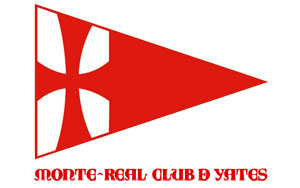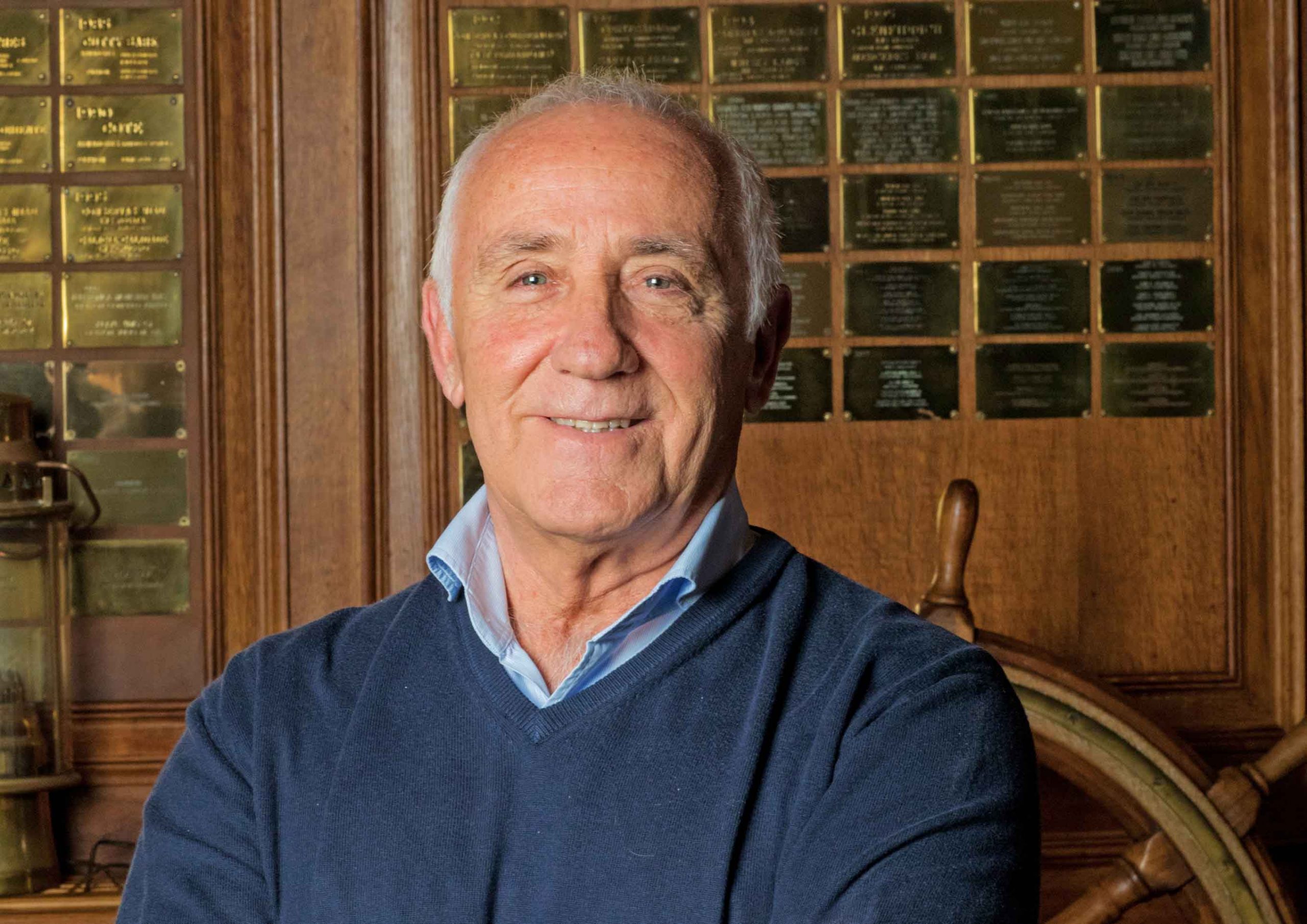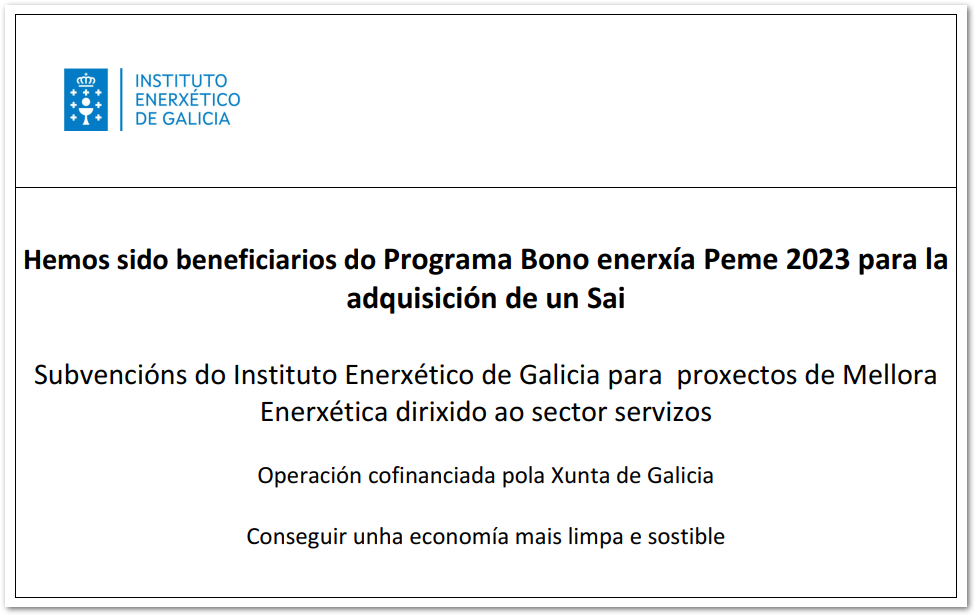After learning of the announcement of the suspension of the prestigious sailing SUPER SERIES in Baiona due to COVID19, we reviewed with the president of the Monte Real Club de Yates, José Luis Álvarez, the impact that the pandemic has had on one of the clubs with the most History of Spain.
While many other yacht clubs saw how COVID made them lose members, reduce income, forced them to suspend regattas and the activity of their schools, the Monte Real Club de Yates de Baiona not only managed to stay afloat, but also signed one of its best years, with record numbers of influx of members and students in its Sailing School.
About a year after the declaration of the state of alarm derived from the coronavirus, the president of the Monte Real Club de Yates de Baiona, José Luis Álvarez, takes stock of what these last months of confinement and restrictions have meant for the club; and of the actions that have allowed them to be an exception in a bleak panorama.
The organization of the SUPER SERIES has just announced the suspension of the Baiona Sailing Week, which next June was going to bring these “formula 1 of the sea” to Galicia. It will have been a very hard blow for the club…
It has been, without a doubt, quite a hit, since we were very excited about the arrival of the SUPER SERIES in Galicia, but we perfectly understand the decision of the organization and we are glad that they have us for 2022. Right now the situation derived from COVID19 did not give them the security they needed and they have preferred to minimize the risks by reducing the trips and suspending the closest regattas in time. From the club, the only thing we hope is that next year the situation will be much better and we can see these outstanding players in Galicia, in a year that will also continue to be Xacobeo, so it will undoubtedly be a good year to receive them as they deserve .
The truth is that the COVID19 crisis has generated numerous losses in the economic activity of many sectors (the nautical sector has not been an exception) and it is still not very well known what the impact will be in the short and medium term. How has this situation affected the Monte Real Club de Yates?
At Monte Real we are lucky that the vast majority of places are occupied by club members, so we manage to keep the pontoons full throughout the year. But we have noticed a huge drop in the number of transits, due to mobility restrictions. The drop in figures has been tremendous, but of course, they could not cross borders. There has been an impact, without a doubt, but much less than what other clubs have possibly suffered, which have also had many membership losses.
In Monte Real they have not suffered those casualties?
The truth is that no. Every year there are some, for different reasons, but the few casualties that have occurred in these months of pandemic have been covered by the entry of new members and we continue with the same number as before. What’s more, there are still people on the waiting list to join the club, because not all applications are accepted. We want to maintain a stable number, around 700 members, which guarantees the comfort of the facilities, and that is why we do not grow exponentially, not because there is no demand, there is.
How has the club member experienced these months of restrictions and prohibitions?
The truth is that the club has been more alive than ever. In the moments in which they have left us, yes. In the months of the strictest restrictions we had to cancel social events, close the restaurant, paralyze the regattas and the school… but when they allowed us to open in the summer, albeit with restrictions, we had an influx of members, students and sailors that we had not seen in years. .
What do you think was due to this unexpected influx of people during the summer?
At first it caught us a bit by surprise, because we weren’t expecting it, but then we understood what was happening: the club had become a safe place where we could spend some leisure time without worrying about the coronavirus. The partners understood all the control measures put in place, some of which were not even required by the authorities, and they felt comfortable and safe with them.
What other older measures did you put in place to avoid COVID?
We always try to go one step further than what the authorities ask of us. All the requirements of closures, capacity, cleaning, control… and we also bought ozone machines and thermometers to control the temperature at the entrances, distributed masks, and even hired external personnel to guarantee that everyone complied with the regulations. They were months of a lot of control and restrictions that made everything a little more uncomfortable and generated some complaints, but at the same time, they created a bubble, a security environment in the club that was not there outside. And that was the reason why we believe we had more influx than ever, and without, that we know of, cases of COVID, which was what really mattered to us.
One of the aspects that most affected Spanish yacht clubs, closely linked to tourism, was a large drop in the number of visitors, something that had a direct impact on their direct income. Did you also notice it in Baiona?
At Monte Real we are lucky that the vast majority of our places are occupied by club members, so we manage to keep the pontoons full, but in the rest of the places we did notice a decrease. In fact, the drop in the number of transits, especially international, was drastic, in this we did not manage to be an exception, but of course, nobody could be an exception because the borders were closed, it was impossible. The truth is that these are difficult times, but we believe that as soon as we can return to normality, Monte Real, Baiona, Galicia and Spain in general have more than enough potential to recover the good pre-COVID tourism figures.
Tourists were lost and regattas were suspended, many regattas, even when they were allowed to take place. Was it a wise decision?
It is difficult to generalize and each club will have to take stock of their decisions based on the reasons that led them to make them. Some would suspend thinking that they would not have sailors, others for fear of contagion, and others simply for comfort. In our case, paralyzing all sporting activity was also valued, but finally we opted to continue promoting sailing. We knew that the decision was going to demand a lot from us, as it did, but we decided to go ahead. And the result was perfect. We held practically all our competitions, including the most popular ones such as the Count of Gondomar and the Prince of Asturias, and we did so without contagion. It was a bet on sailing and it worked out well for us. With a lot of effort, yes.
Last year, in the midst of the pandemic, they announced the celebration of the Super Series, which will have to wait until 2022, and the other great news that the club left us in the months of COVID was its choice as the venue for the 2023 J80 World Cup. , something that they had been pursuing for years. Is this achievement the culmination of your commitment to these monotypes?
I would not know if it is the culmination or not, but of course the fact that they have granted us the celebration of the world championship of a class for which we have been betting for years is a very important milestone. One of the points on our program was, and continues to be, the internationalization of Monte Real, and we are working on that. Bringing these two top-level competitions to Galicia is the result of months and months of work, and the truth is that we are very happy.
One of the projects that they plan to launch this year is VELA EN FEMENINO, aimed at promoting the figure of women in the world of sailing. Tell us more about this proposal.
It is about taking another step in our commitment to women in the world of sailing, because there are still very few women who sail today. 25 years ago we launched, I don’t know if it was the first, but one of the first exclusively female competitions in Spain, the Ladies Cup, and now what we intend to do is launch new lines of action with the same objective, which is none other than to achieve that women have more presence in the nautical world. We have designed a series of proposals for training, competition and also of a social nature, with women victims of gender violence; and we are trying to find a sponsor who shares our same vision and wants to promote this initiative.
The woman will be, then, the protagonist of the future of the club… what other projects do you have in mind for the coming years?
The truth is that we have many projects on the table, although not all of them can be counted because some are still in negotiations or are not completely closed. From what can be counted, training will undoubtedly be one of our bets. We have managed to become a training center of the Royal Yachting Association and in a few months we will be the first club in Galicia and the entire Spanish Bay of Biscay to offer its prestigious courses, which are the most important in the nautical sector worldwide. We will also begin to offer courses to obtain the PNB, the PER and the qualifications of skipper and captain of yachts; and with regard to infrastructure, we are going to improve the club’s facilities, putting fingers in all our seats, which was a demand of many of our visitors, especially international ones. There is also an important advance that is taking place and that we hope to be able to announce in a few weeks, but for now we have to wait.
It is an interview with Rosana Calvo, head of communication at the MRCYB




